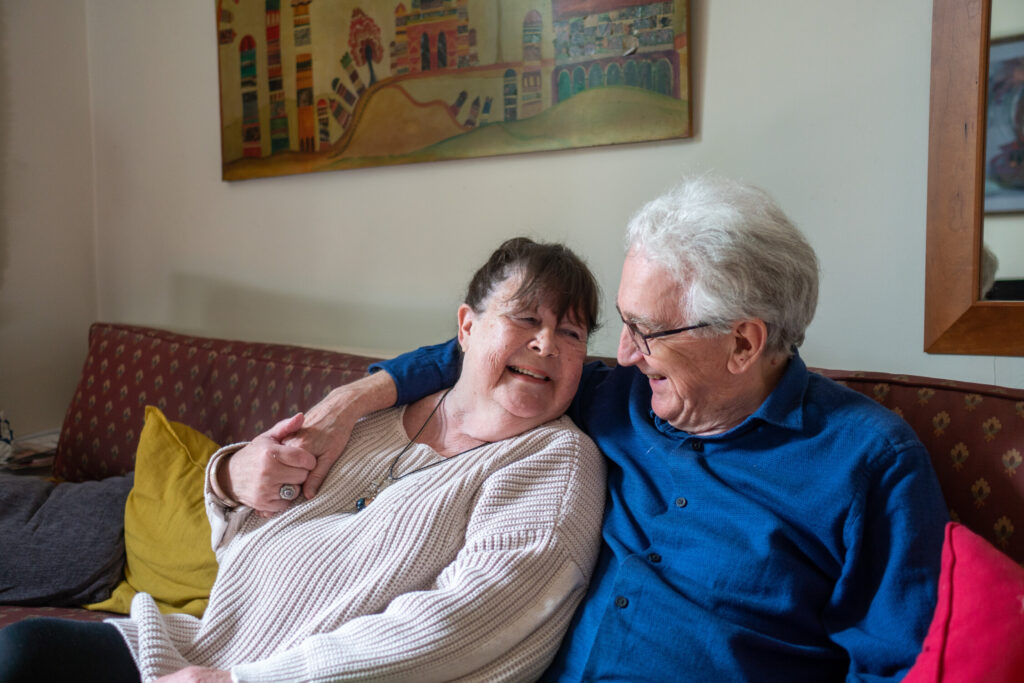We are getting older. Not just individually, but as a population. We’re in the midst of a demographic shift that will see the number of older people (age 65+) in the U.S. grow larger than the number of children (under 18) for the first time in our nation’s history by the year 2030.
Although, you could never tell this shift is happening just by looking at the ways our society spends its public and

philanthropic dollars. Even as the aging population grows, we continue to see a decline in funding dedicated to meet the needs of this growing group. In Minnesota, less than 1% of philanthropic dollars go to aging services.
So where does this inverse relationship between the number of seniors and the support for them come from?
As a nonprofit focused on helping people safely remain in and keep their own homes, we’ve confronted our fair share of justifications.
Out of sight, out of mind
The reality is most of us have an issue with the fact that
we’re growing older. The negative ways we talk to each other and ourselves
about aging is laced with deep-seated ageism that suggests simply the act of growing
older is synonymous with becoming less useful, less desirable, and less
healthy.
And so, we do our best to ignore it. But often, an
unintentional byproduct of viewing our own aging so negatively is projecting
those same feelings onto others. As a result, we end up ignoring the unique
needs of the older adults around us.
There is no easy solution here. Securing services tailored
for aging adults is a start, but all the funding in the world won’t undo
cultural programming. We must reframe what it means to age and challenge the
way talk about it to ourselves and one another.
Charitable funding should be an investment. Why invest in something old?
When investing in something, either financially or
emotionally, there’s a somewhat natural inclination to want to see a long-term return
on that investment. When it comes to the way we fund public services, it’s
easier for many to see support services for younger demographics as a wiser
investment because it’s the next generation. Over time you may see decades of
impact on a single life and feel that your charitable investment has generated
a healthy return. The perception is investing in services for someone in the
later acts of their life won’t yield that same return.
Ignoring the callousness of deciding some lives are worth more
investing in than others, it’s also prudent to point out that with a growing
aging population, we will need support in place to meet the changing
needs of our older demographic and their informal caregivers.
The overwhelming majority of us want to remain in our own
homes as we age and we will all need some level of support to do so safely and
comfortably, in a home we’re proud of. The more we work to secure accessible aging
services now, the more options we will all have as we grow older ourselves.
They had time to financially plan for getting older, why should I have to support them now?
There’s undeniably a stigma around needing a little extra
support as an older adult. The implication is the individual didn’t prepare
well enough or made the wrong decisions as they grew older.
We hear some version of this reasoning too often, and it’s harder
to respond to because it often boils down to an oversimplification and a lack
of empathy. We all know life is beyond unpredictable. No one can “prepare” for
life-changing illness, tragedy, freak accidents, systemic marginalization, or
any number of unpredictable circumstances that can decimate even the best laid
financial plans.
Aging Better Together
If we are lucky, we will grow older. It’s one of the only experiences every single one of us has in common with one another.
Instead of constantly thinking of aging as a shameful secret that makes us less than we were, we should strive to recognize it for what it is; a natural process of change and growth, where we become more ourselves.
Our growing aging population doesn’t have to be viewed as a burden or a scary demographic shift.
If we are truly committed to becoming a more inclusive society that celebrates our differences and looks out for one another, that must include equity for people of all ages. No one should be forced to age out of their community. We all deserve choices in how and where we age; in the places we love.
Because isn’t that how we’d all like to grow old?
Senior Community Services is a local nonprofit that helps older adults and caregivers navigate aging to maintain independence and quality of life.



